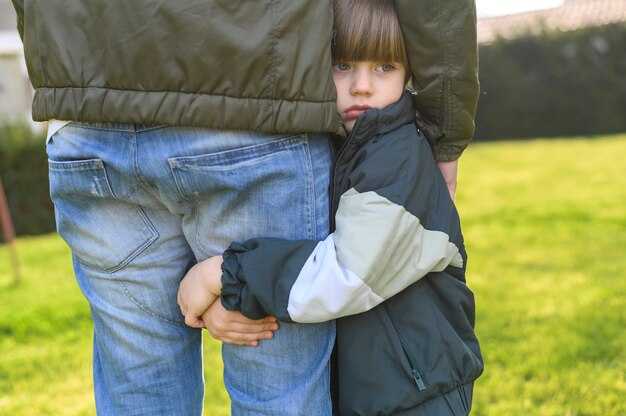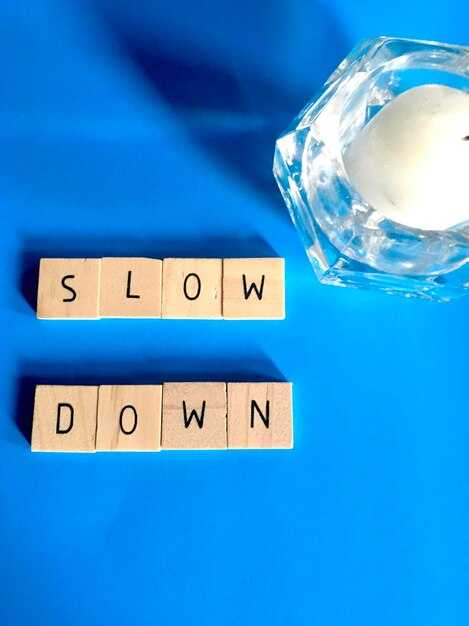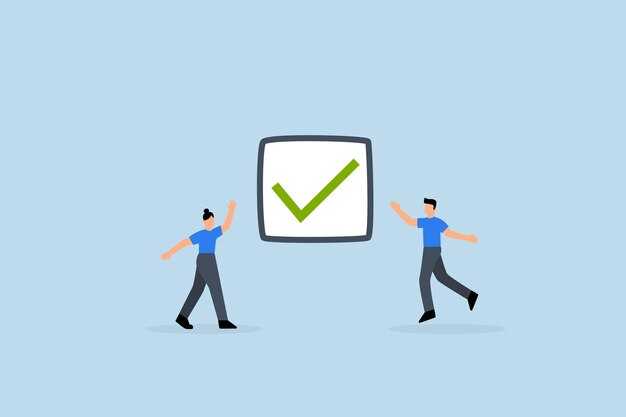Εάν ως παιδί έπρεπε να αναλάβεις τις ευθύνες ενός ενήλικα, αυτό ήταν συναισθηματική παραμέληση—απλά και ξεκάθαρα. Αναγκάστηκες να μπεις σε έναν ρόλο που έκλεψε την παιδική σου ηλικία και οι συνέπειες σε ακολουθούν ακόμα. Μπορεί να λες στον εαυτό σου ότι απλά δεν είσαι καλός στο να ξεκουράζεσαι, ότι είσαι υπερβολικά ανεξάρτητος, αλλά η αλήθεια είναι ότι έχεις κολλήσει σε κατάσταση επιβίωσης. Έμαθες να φαίνεσαι εντάξει ακόμα και όταν απείχες πολύ από αυτό και τώρα δεν ξέρεις πώς να σταματήσεις. Γι' αυτό το να ζητάς βοήθεια φαίνεται αδύνατο. Γι' αυτό το παρακάνεις σε κάθε σχέση. Γι' αυτό καταρρέεις ιδιωτικά αλλά συνεχίζεις να χαμογελάς όταν σε παρακολουθούν οι άλλοι. Αυτή δεν είναι η προσωπικότητά σου και δεν είναι δικό σου φταίξιμο—είναι τραύμα που κουβαλάς ακόμα. Εάν σε έκαναν να είσαι ο ενήλικας όταν ήσουν παιδί, το πιθανότερο είναι ότι κανείς δεν εξήγησε ποτέ πόσο λάθος ήταν αυτό. Μπορεί να μην το αναγνωρίζεις καν ως κακοποίηση ή παραμέληση. Αλλά όταν ένα παιδί αναμένεται να σηκώσει τα συναισθηματικά ή πρακτικά βάρη ενός γονέα, κάτι ουσιαστικό αφαιρείται: το δικαίωμα να είναι ευάλωτο, να προστατεύεται, να αγαπιέται χωρίς να το κερδίζει. Αυτή η αντιστροφή των ρόλων—γονεοποίηση—διαστρεβλώνει την ταυτότητά σου. Σε αναγκάζει να αποδίδεις και να αυξάνεις συνεχώς την ικανότητά σου ενώ οι δικές σου αναπτυξιακές ανάγκες παραμένουν ανεκπλήρωτες.
Όταν ήμουν μικρός, οι γονείς μου χώρισαν όταν ήμουν επτά. Για χρόνια πριν από αυτό, το σπίτι μας ήταν γεμάτο καβγάδες. Η μητέρα μου εξαφανιζόταν μερικές φορές και δεν ξέραμε ποτέ αν θα επέστρεφε. Ένα απόγευμα ο πατέρας μου ήρθε σε μένα στο διάδρομο με μια βαλίτσα και μια βαλίτσα και είπε: “Λυπάμαι πολύ. Πρέπει να φύγω αμέσως. Θα σε βλέπω όσο περισσότερο μπορώ, αλλά δεν μπορώ να μείνω άλλο εδώ”. Η καταστροφή εκείνης της στιγμής είναι χαραγμένη μέσα μου. Τον επισκέφτηκα στο μικροσκοπικό του μέρος—έμενε σε ένα γκαράζ—και δε ξέρω πόσο καιρό του είχε απομείνει. Έζησε μόνο άλλα επτά ή οκτώ χρόνια και ήταν άνεργος το μεγαλύτερο μέρος του χρόνου. Νομίζω ότι τον έσπασε η αποχώρηση της μητέρας μου. Μετά η μητέρα μου ξαναπαντρεύτηκε και μας μετακόμισε σε άλλη πολιτεία. Ο πατέρας μου δεν ζήτησε ποτέ αυτή την ανατροπή, δεν ήθελε διαζύγιο ή να χάσει την επιμέλεια και ήταν συντετριμμένος. Ένιωθα κι εγώ συντετριμμένος, αλλά ήμουν πολύ πιο συντονισμένος με το πόσο συντετριμμένος ήταν αυτός, οπότε απασχολήθηκα με το να τον προστατεύω από τα χειρότερα.
Η μητέρα μου ξαναπαντρεύτηκε γρήγορα. Ο πατριός μου ήταν ένας αξιοπρεπής άνθρωπος από πολλές απόψεις, αλλά από την αρχή ήθελε να τον αποκαλούμε με ένα όνομα τύπου “μπαμπά”. Επέλεξα το “πατέρα” επειδή μου φαινόταν επίσημο και τιμούσε το αίτημά τους. Ήμασταν πολύ μικροί—περίπου οκτώ όταν μετακομίσαμε και εννέα όταν παντρεύτηκαν—και ενώ έκανε πολλά για να μας παρέχει, ποτέ δεν με αποδέχτηκε πραγματικά ως παιδί. Είχα μια αδερφή που ήταν μόλις τριών όταν συνέβησαν όλα αυτά, και όταν φύγαμε, μας πήραν από τον πατέρα που μας αγαπούσε και μας έβαλαν με έναν άντρα που ήταν, κατά καιρούς, αμφίθυμος. Συνεχίσαμε να τον αποκαλούμε πατέρα. Όταν επισκεπτόμασταν τον πραγματικό μας μπαμπά, πρόσεχα να χρησιμοποιώ το μικρό όνομα του πατριού μου για να μην τον στεναχωρήσω—ο μπαμπάς μου ήταν συναισθηματικά ασταθής και βαθιά αγαπητός, αλλά δεν είχε καμία αίσθηση υγιών ορίων. Ανησυχούσα συνεχώς γι“ αυτόν και είπα στη μικρή μου αδερφή να μην πει ποτέ ”πατέρα» μπροστά στον μπαμπά, αλλά ήταν πολύ μικρή για να θυμάται και θα έκανε λάθος. Θα έφτανα στο σημείο να προσπαθήσω να το καλύψω—διασπώντας την προσοχή, πνίγοντας τις λέξεις—επειδή φοβόμουν πώς θα αντιδράσει. Κοιτάζοντας πίσω ως ενήλικας και τώρα ως μητέρα, είναι τρομακτικό να φαντάζομαι ένα μικρό κορίτσι να προσπαθεί να διαχειριστεί τα συναισθήματα ενός ενήλικα.
Δεν τολμούσα να του πω για τους πραγματικούς κινδύνους που αντιμετωπίζαμε σε εκείνο το νέο σπίτι. Η μητέρα μου έπινε πολύ και ο πατριός μου μπορούσε να γίνει πολύ θυμωμένος. Όταν οργιζόταν, η οδήγησή του γινόταν παράτολμη—μερικές φορές ένιωθα σαν να μην τον ένοιαζε αν ζούσαμε ή πεθαίναμε. Δύο φορές χρειάστηκε να πηδήξω έξω από ένα κινούμενο αυτοκίνητο για να σώσω τη μικρή μου αδελφή, τραβώντας την μαζί μου σε έναν χωματόδρομο κατά μήκος ενός ορεινού πεζουλιού—μία φορά γύρω στην ηλικία των δέκα και ξανά περίπου στα δώδεκα. Θυμόμενη αυτό τώρα, ως κάποιας της οποίας τα παιδιά έχουν μεγαλώσει, βλέπω πόσο ακραίο και τραυματικό ήταν. Αυτά τα γεγονότα δεν συζητήθηκαν ποτέ στην οικογένειά μου. Σκεφτείτε την γονεοποίηση: αναλαμβάνοντας το βάρος της διατήρησης ενός παιδιού ασφαλούς από καταχρηστική συμπεριφορά, και στη συνέχεια ποτέ να μην το αναφέρετε στους γονείς που προκάλεσαν τον κίνδυνο—αυτό το βάρος είναι πάρα πολύ βαρύ για να το κουβαλήσει ένα μικρό παιδί. Με την πάροδο του χρόνου, μέσα από αργή αποσυμπίεση και καθημερινή εσωτερική εργασία, έχω εκπλαγεί από το πόσες από τις συμπεριφορές και τα τυφλά μου σημεία ανιχνεύονται πίσω σε εκείνη την εποχή. Αυτό που κάποτε νόμιζα ότι ήταν “δύσκολο” τώρα μοιάζει με τρέλα—τι κόστισε αυτό στο πνεύμα μου, το να πρέπει να σώσω ένα νήπιο από ένα κινούμενο αυτοκίνητο και να μην πω τίποτα γι' αυτό;
Υποπτεύομαι ότι αν ο πατέρας μου γνώριζε αυτούς τους κινδύνους, θα είχε κανονίσει να ζήσουμε μαζί του, κάτι που πιθανόν θα ήταν καλύτερο, αλλά δεν είχε σταθερή δουλειά και δεν νομίζω ότι τα δικαστήρια θα του είχαν δώσει την επιμέλεια τότε. Έτσι, έπρεπε να αναγνωρίσω, εκ των υστέρων, ότι ήμουν γονεοποιημένη. Αυτό εξηγεί πολλά από τα τυπικά χαρακτηριστικά μιας μεγαλύτερης κόρης που αναγκάστηκε να αναλάβει ενήλικους ρόλους: δυσκολία χαλάρωσης, δυσκολία να εμπιστευτείς άλλους να χειριστούν ευθύνες όπως το να βγάλουν χρήματα, αδιάκοπη εργασία από νεαρή ηλικία —ξεκινώντας από τα εννέα— χωρίς να μπορείς ποτέ να ξεκουραστείς. Ακόμα και τώρα, παρόλο που πιθανότατα θα μπορούσα να επιβραδύνω, επιλέγω να μην το κάνω γιατί τελικά αγαπώ τη δουλειά μου, και το να την κάνω από αγάπη βοηθάει επίσης στην πληρωμή των λογαριασμών. Όταν παραμελείσαι, πιθανότατα έχεις ιστορίες εκπληκτικών επιτευγμάτων από την παιδική ηλικία — άνθρωποι που σε επαινούν ως τόσο ώριμο, τόσο ικανό. Δεν επέλεξες τη δύναμη επειδή τη ήθελες· έγινες δυνατός επειδή δεν είχες άλλη επιλογή. Έμαθες νωρίς ότι κανείς δεν ερχόταν και κατέστειλες τις δικές σου ανάγκες. Έγινες ο ειρηνοποιός, ο επιδιορθωτής, ο αόρατος, και επαινέθηκες που ήσουν ώριμος — σε αποκαλούσαν “παλιά ψυχή”. Αυτό που σήμαινε πραγματικά ήταν ότι δεν κατάφερες ποτέ να γίνεις παιδί.
Ως ενήλικας, κουβαλάς αυτόν τον ρόλο στο σώμα σου, στις σχέσεις σου, στο νευρικό σου σύστημα. Μπορεί να είσαι επιτυχημένος εξωτερικά και να μην είσαι ακόμη σαφής σχετικά με το τι χρειάζεσαι πραγματικά. Μπορεί να προσελκύεις ανθρώπους που βασίζονται σε σένα συναισθηματικά, ενώ κρυφά δυσανασχετείς που νιώθεις τόσο μόνος. Μπορεί να τρομοκρατείσαι από την ευαλωτότητα—φοβούμενος να σε δουν ως αδύναμο ή έχων ανάγκη—επειδή, τότε, το να χρειάζεσαι οτιδήποτε είχε ένα κόστος. Ίσως ένας γονέας να σου εκμυστηρεύτηκε προβλήματα γάμου, εθισμού, κατάθλιψης, οικονομικών ή σεξ—ευθύνες που θα έπρεπε να είχαν μείνει μεταξύ ενηλίκων. Ίσως φρόντιζες αδέλφια, διεύθυνες το νοικοκυριό ή έγινες ο άρρητος οικογενειακός θεραπευτής, ειρηνοποιός ή μεταφραστής—πηγαίνοντας τους γονείς σου σε ιατρικά ραντεβού και εξηγώντας οικείες ή ιατρικές λεπτομέρειες. Εάν έκανες αυτές τις δουλειές καλά, έγιναν η ταυτότητά σου και πιθανότατα σε καθορίζουν ακόμα σε πολλούς κύκλους.
Να μια αλήθεια που μπορεί να διαλύσει ολόκληρη αυτή την ψευδαίσθηση: το να λειτουργείς δεν είναι το ίδιο με το να είσαι εντάξει. Το να σε χρειάζονται δεν είναι το ίδιο με το να σε αγαπούν. Το να είσαι δυνατός δεν σημαίνει ότι έχεις όλα όσα χρειάζεσαι. Η κληρονομιά του να ωριμάσεις πολύ νωρίς είναι μια παράσταση αξίας. Έμαθες να διαβάζεις τις διαθέσεις πριν ειπωθούν οι λέξεις, να προβλέπεις τις ανάγκες, να εξομαλύνεις τις εντάσεις πριν ξεσπάσουν και να διαχειρίζεσαι τα πάντα εκτός από τα δικά σου συναισθήματα. Ίσως υπερηφανεύεσαι για την αυτάρκειά σου, αλλά από κάτω υπάρχει ένα κομμάτι σου που είναι πεπεισμένο ότι αν αφεθείς, τα πάντα θα καταρρεύσουν. Αυτό το κομμάτι βρίσκεται ακόμη σε κατάσταση επιβίωσης επειδή δεν ωρίμασες απλώς νωρίς—παρέλειψες κρίσιμα αναπτυξιακά στάδια. Δεν έμαθες ποτέ την υγιή αλληλεξάρτηση, την εμπιστοσύνη ή τα όρια. Η σταθερή υποστήριξη που θα επέτρεπε στους συναισθηματικούς σου μύες να αναπτυχθούν με ασφάλεια απουσίαζε και αντ' αυτού ρίχτηκες στη συναισθηματική ενηλικίωση χωρίς καθοδήγηση ή προστασία.
Το τίμημα αυτής της ανατροφής εμφανίζεται ως υπερεγρήγορση, άγχος, ντροπή, τελειομανία και συναισθηματικό μούδιασμα. Είστε εξαιρετικός σε μια κρίση, αλλά ανίκανος να νιώσετε χαρά. Μπορείτε να ανεχτείτε το χάος, αλλά η οικειότητα σας τρομοκρατεί. Διορθώνετε τα προβλήματα των άλλων, αλλά δεν ξέρετε πώς να ξεκουραστείτε, να δεχτείτε ή να ζητήσετε βοήθεια χωρίς ενοχές. Οι άνθρωποι σας επαινούν – “Είναι τόσο δυνατή” – αλλά δεν βλέπουν το τίμημα του να πρέπει πάντα να είστε ικανός. Δεν βλέπουν το παιδί μέσα σας που δεν είδε ποτέ ή δεν φρόντισε κανείς, που δεν είχε ποτέ άλλους να βοηθήσουν να σηκώσουν τα βάρη της ζωής. Η παιδική ηλικία τελείωσε πριν από πολύ καιρό, αλλά η πληγή παραμένει. Μετά από μια ζωή που κρατάτε τα πάντα ενωμένα, η ιδέα της κατάρρευσης μπορεί να μοιάζει με απειλή για την ίδια σας την επιβίωση. Ακόμη και η θεραπεία μπορεί να φαίνεται επικίνδυνη, επειδή απαιτεί να γίνετε κάποιος που δεν ξέρετε ακόμη πώς να είστε – κάποιος που επιτρέπει τη θλίψη, την ευαλωτότητα και την εξάρτηση. Ο φόβος είναι ότι αν επιτρέψετε στον εαυτό σας να είναι τόσο λυπημένος όσο είστε κρυφά, χωρίς συνεχή προσπάθεια και χειρισμό, θα κατακλυστείτε.
Υπάρχουν κομμάτια του εαυτού σου που μόλις και μετά βίας γνωρίζεις: μια τρυφερότητα που φοβάσαι ότι θα απωθήσει τους άλλους, όνειρα που έθαψες επειδή σου φάνηκαν ανόητα, συναισθήματα που αναδύονται μόνο ως πανικός, οργή ή αποσύνδεση. Αυτές οι αντιδράσεις δεν είναι αδυναμία· είναι η συσσώρευση των ανολοκλήρωτων εμπειριών που ο εγκέφαλός σου δεν μπορούσε να διαχειριστεί σε πραγματικό χρόνο. Το τραύμα μπλοκάρει τα πράγματα, δημιουργώντας μια συνεχή, εσωτερική κατάσταση έκτακτης ανάγκης υψηλού κινδύνου. Ίσως να μεγάλωσες χωρίς προστασία ή συνέπεια, αλλά έχεις επιλογές τώρα—ατελείς και όχι θαυματουργές, αλλά πραγματικές, στιγμή προς στιγμή. Μπορείς να βγεις από αυτούς τους παλιούς ρόλους. Μπορείς να παρατηρήσεις πότε υπερλειτουργείς και να αναγνωρίσεις πότε διαχειρίζεσαι τις αντιδράσεις των άλλων αντί για τις δικές σου. Μπορείς να νιώσεις την κοινωνική πίεση να πεις ναι και να επιλέξεις να πεις όχι—όχι για να γίνεις κάποιος άλλος, αλλά για να είσαι ειλικρινής και να γίνεις ο εαυτός σου. Μπορείς να ξεκουραστείς πριν καταρρεύσεις, να αρνηθείς πριν εγκατασταθεί η δυσαρέσκεια και να αφήσεις κάποιον να μπει ακόμα και όταν κάθε ένστικτο λέει τρέξε. Είναι άβολο στην αρχή, αλλά έτσι επιστρέφεις στον εαυτό σου.
Δεν χρειάζεται να κουβαλάς τα πάντα. Δεν χρειάζεται να αποδεικνύεις συνεχώς την αξία σου ή να υποδύεσαι την ενηλικίωση που γεννήθηκε από την παιδική επιβίωση. Αυτός ο ρόλος δεν είσαι εσύ και δεν είναι δική σου δουλειά να γίνεις γονέας του κόσμου. Είσαι ένας ικανός ενήλικας τώρα, και με αυτή την ικανότητα έρχεται η ευθύνη να σπάσεις την παλιά έκσταση—να επιτρέψεις στη μικρή μηχανή που πάντα στροφάρει να ξεκουραστεί για λίγο. Μπορείς να κρατήσεις τη μηχανή, αλλά άφησέ την να κάνει μια παύση. Έχεις τραβήξει το τρένο πάνω στο βουνό· έχεις κρατήσει την γραμμή και έχεις κάνει το αδύνατο. Τώρα μπορείς να είσαι αληθινός. Νομίζω ότι μπορώ. Νομίζω ότι μπορώ. Ξέρω ότι πρέπει. Ξέρω ότι πρέπει. Άφησε αυτή τη μηχανή να ξεκουραστεί. Το έχεις κερδίσει. Αν αυτό είχε απήχηση, υπάρχει ένα άλλο βίντεο που νομίζω ότι θα εκτιμήσεις—ρίξε μια ματιά και θα τα πούμε εκεί. Μπορεί να πείσεις τον εαυτό σου ότι είναι απελευθερωτικό να ελέγχεις τον χρόνο σου ακόμα και όταν οι αντιδράσεις σου σε κυβερνούν, αλλά τη στιγμή μπορεί να νιώσεις ανακούφιση να δημιουργήσεις χώρο για να αναπνεύσεις και να κρατήσεις τους ανθρώπους σε απόσταση, ώστε να μπορείς απλά να είσαι.


 Αν έπρεπε να είσαι ο ενήλικας όταν ήσουν παιδί… ΔΕΙΤΕ τι κουβαλάς ακόμα">
Αν έπρεπε να είσαι ο ενήλικας όταν ήσουν παιδί… ΔΕΙΤΕ τι κουβαλάς ακόμα">

 Τι κάνει μια ΥΠΕΡΟΧΗ Σχέση; || Πώς να Χτίσετε μια ΥΠΕΡΟΧΗ Σχέση">
Τι κάνει μια ΥΠΕΡΟΧΗ Σχέση; || Πώς να Χτίσετε μια ΥΠΕΡΟΧΗ Σχέση">
 How To Respond To Rude Comments Without Losing Your Cool">
How To Respond To Rude Comments Without Losing Your Cool">
 Ο/Η σύντροφός μου ΔΕΝ θέλει να πάει σε συμβουλευτική.">
Ο/Η σύντροφός μου ΔΕΝ θέλει να πάει σε συμβουλευτική.">
 Ο Μυστικός Δεσμός Που Δένει τους Αποφεύκοντες σε Ένα Άτομο για Πάντα | Jordan Peterson | Ενθαρρυντική Ομιλία">
Ο Μυστικός Δεσμός Που Δένει τους Αποφεύκοντες σε Ένα Άτομο για Πάντα | Jordan Peterson | Ενθαρρυντική Ομιλία">
 Υπάρχει Κάτι Ελκυστικό στους Συντρόφους που Απογοητεύουν">
Υπάρχει Κάτι Ελκυστικό στους Συντρόφους που Απογοητεύουν">

 Δεν ΜΠΟΡΕΙΣ να έχεις οικειότητα χωρίς ΑΥΤΟ.">
Δεν ΜΠΟΡΕΙΣ να έχεις οικειότητα χωρίς ΑΥΤΟ.">
 Τι Συμβαίνει στους Αποφεύκοντες Όταν Παραμένετε Σιωπηλοί Για Περισσότερο Χρόνο Από Αυτόν που Αναμέναν | Mel Robbins motivational">
Τι Συμβαίνει στους Αποφεύκοντες Όταν Παραμένετε Σιωπηλοί Για Περισσότερο Χρόνο Από Αυτόν που Αναμέναν | Mel Robbins motivational">
 Επαλήθευση Αμοιβαίας">
Επαλήθευση Αμοιβαίας">
 Why You Become Anxious & Clingy: The Avoidant’s ‘Interest Trap’ Explained.">
Why You Become Anxious & Clingy: The Avoidant’s ‘Interest Trap’ Explained.">